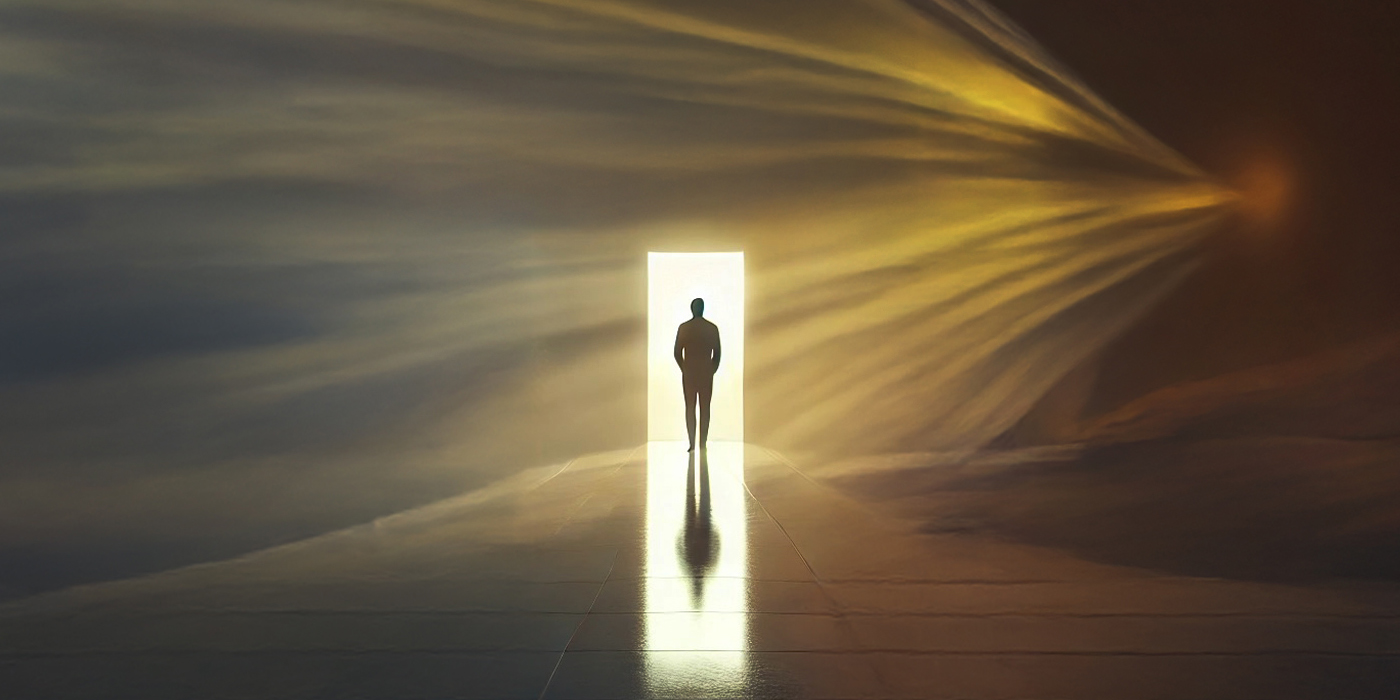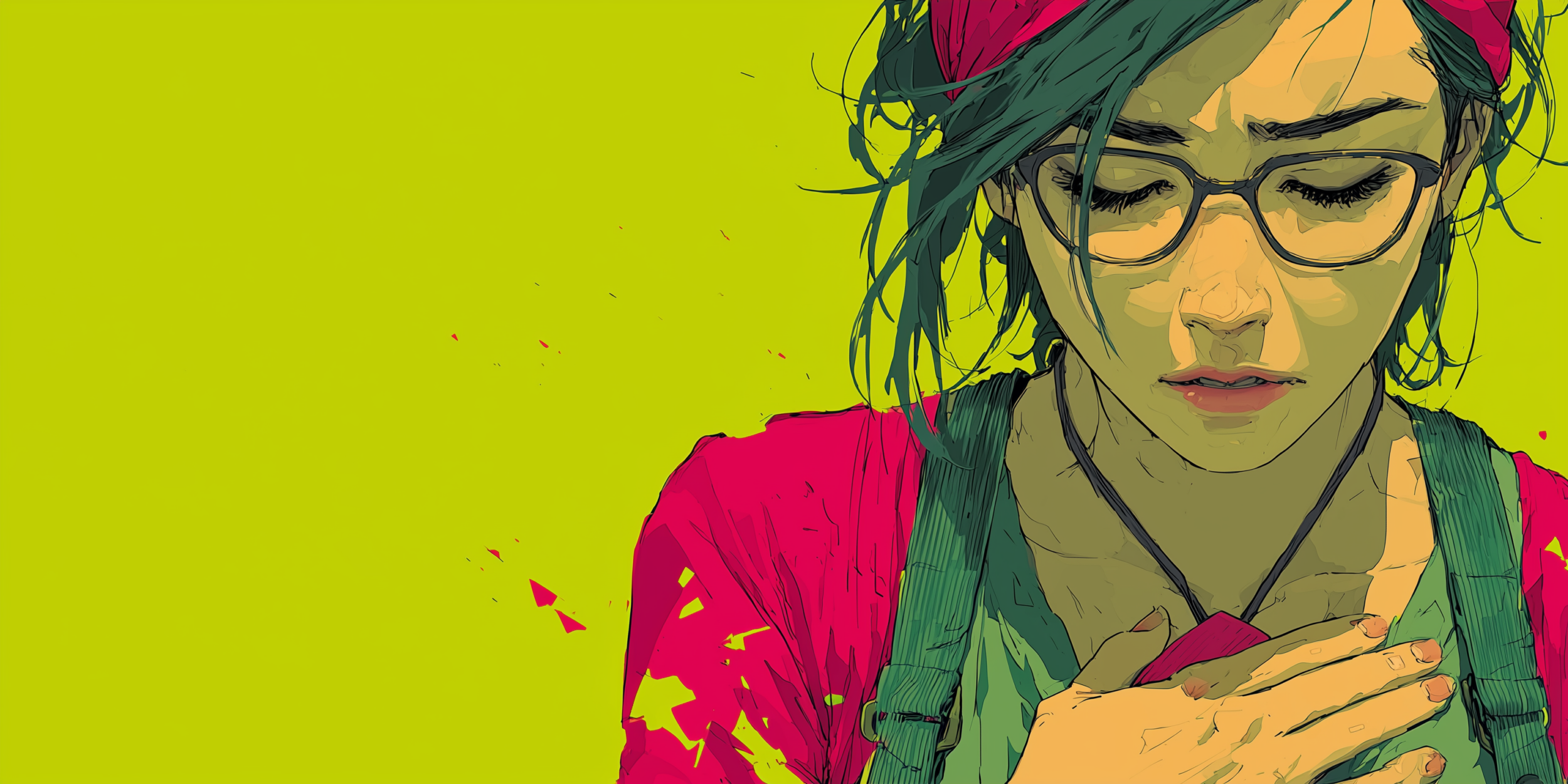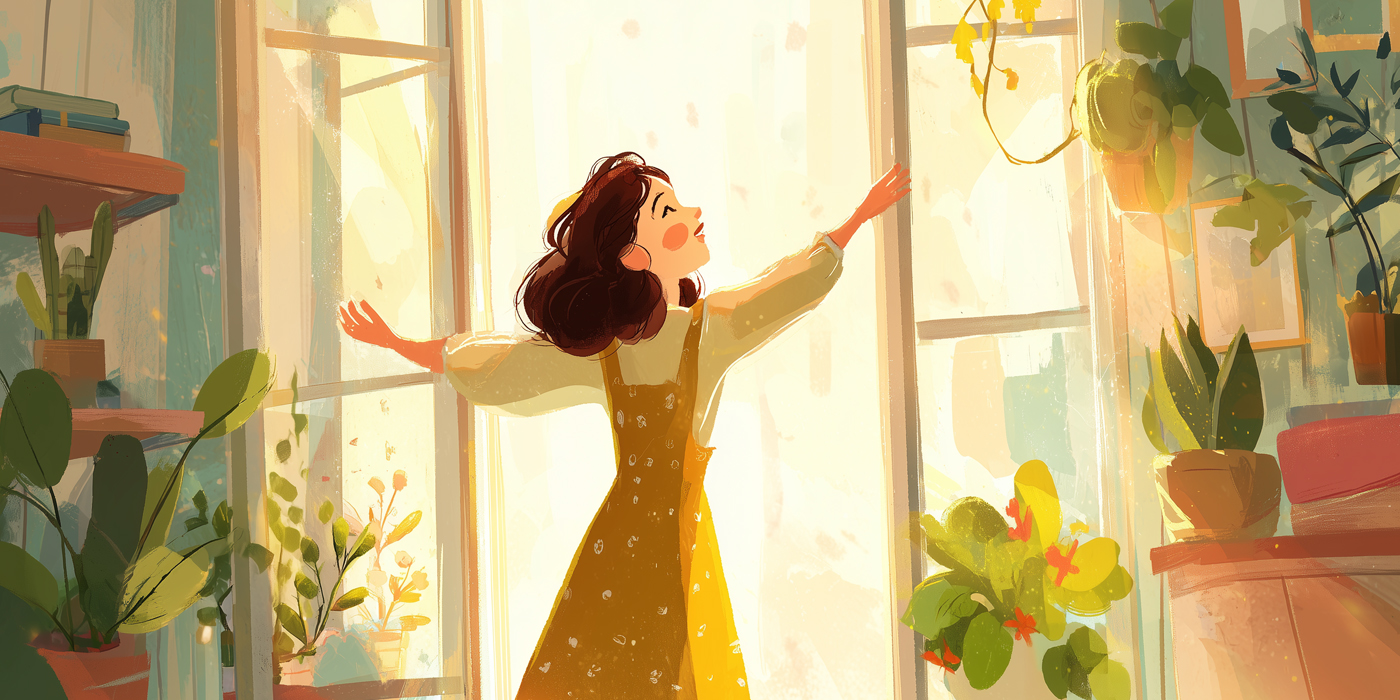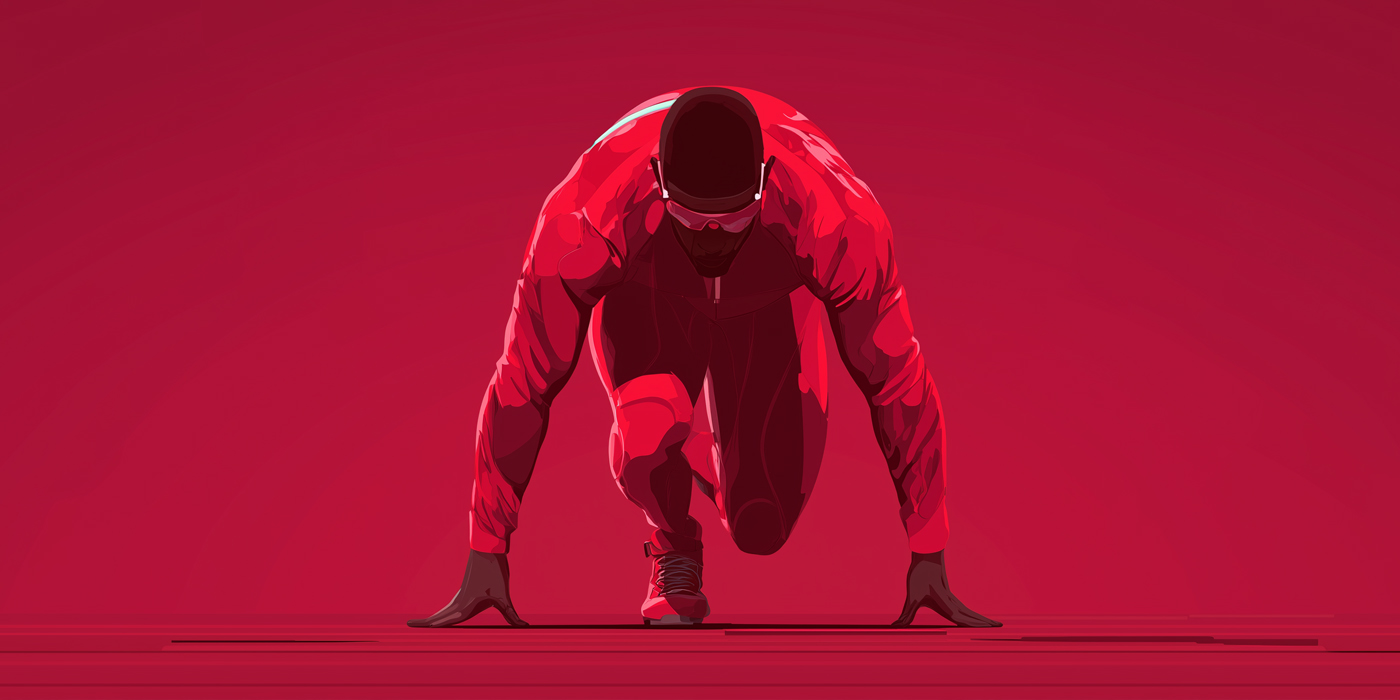
Luc D.
January 6, 1968 — October 21, 2024
Ghent, Belgium
We are greatly saddened by the sudden passing of the ESSAY Editor, Luc D. As you can see by this issue, ESSAY will continue—although it won’t be the same without Luc’s magic.
I was on the Board of Trustees (BoT) in 2020 when we needed a new editor for the ESSAY. Luc D. stepped forward among other applicants for the position who all had extensive experience in graphic design and magazine layout. The BoT felt he was clearly sent by God to serve SA when we hired Luc. He served as Editor for four years.
Luc transformed the ESSAY. The Trustees struggled to keep up with his creative and visionary ideas. He changed the ESSAY from a mostly b/w text newsletter to professional full-bleed magazine, expanded its size, and convinced the Board to risk publishing six issues per year instead of five. As the first ESSAY Editor from outside the USA, Luc placed an emphasis on the magazine that reflects the international nature of our Fellowship. He spearheaded adding an online version of the ESSAY (essay.sa.org) with podcasts, videos, and translations into nine other languages.
The fellowship cannot fully express our gratitude for all Luc did for us. He will be missed greatly.
Eric H., Florida, USA
For Luc
I would like to share with you how it was at Luc’s funeral and to write a few words about Luc himself—his influence on me as my sponsor and taking me through the Twelve Steps of SA.
His funeral was in Kiezegem where he grew up. It’s a village out in the Belgian countryside, a loose collection of farmhouses really. His mother, brothers, and sisters stood in a line across from the entrance to the church and shook people’s hands as they entered. The church was small, every pew packed; people still arriving came to stand three deep around the walls. My back was to the wall and I’m a bit claustrophobic, so before the ceremony started and with people still coming in, I squeezed out to the entrance porch and stood at the doorway looking up toward Luc’s casket at the altar, his photo portrait on top of it.
The ceremony was beautiful and dignified. It felt intimate, deep, and meaningful, more than simple ritual. The Belgian fellowship provided a translation pamphlet of the Mass, so I and other English speakers could follow. The two eulogies were moving; you didn’t need to speak Flemish to hear and feel the grief but also the joy of Luc. As the Mass ended, a recording of Luc’s favorite hymn came on: “Into the Night” from Taizé. I had never heard it before. It was beautiful—a slow, serene air that, more than anything, carried home the truth of this tragedy, penetrating the numbness of shock, dispelling any last lingering disbelief. There was no hiding place. Perhaps this is the purpose of ritual, to help us understand, accept, and cope with tragedy. For the first time in years, I cried.
Luc was more than a sponsor to me. His passion for God, for spiritual growth, for the Twelve Steps that open the way to the grace of a Higher Power, and for helping others to live a good life enthused me so much that I put aside my rebellious self-will, any questioning of his suggestions, and did whatever he said. I gladly kept coming back, phoning him on time, and doing the work he gave me so that, over time, my spirit healed too. And, as I took on healthier beliefs, ideas, and attitudes, I became joyful like him, and of use to God and to those around me. In the course of time, as we got comfortable within our boundaries, I matured emotionally and learned to feel feelings without medicating, even those that I felt now.
I first met Luc in March of 2015. He had been invited to speak at a convention near Galway, Ireland. There, listening to this tall, young-looking stranger, I was moved hearing him share so openly about the intensity of his past acting out. I also discerned in him an almighty thirst for God, the Higher Power of his understanding. He shared how he had searched for Him everywhere, in everything, but did not recognize Him anywhere. He even described how he had swum the Ganges river in India, drinking in the waters of that hallowed river while dead cows floated past him. When I heard that, I wanted him to be my sponsor.
The first thing I learned from Luc was the most important thing: the Twelve Steps of SA equals the program of SA, and all other elements support Step work—meetings, service, literature, fellowship. These essentials are enabled and given meaning by the Steps. The Steps, he explained, are like cleaning the windows of your soul, windows that have long been dirty. Once they are clean, the Light comes in. It just happens. You can’t stop it. And then the transformation takes place.
I’m sure my previous sponsors told me the same thing, maybe in different terms, different emphases here and there, different styles of sponsorship—but it all went over my head. As the saying goes, when the student is ready the master appears. Luc and I worked together very well. A mutual friend advised me not to waste Luc’s time. Luc was intense. He valued his time, so I made sure to call him on time, every time, and always with my Step work done; I did not want to be fired by this sponsor. I could see his value to my recovery.
And so we went along, Step by Step, until we had all twelve done. Step Four took more than two years to complete because he wanted me to forgive everyone on my resentment list. He included in this Step a way of praying for each resentee: three rounds of prayers adapted from the Big Book, each round increasing in intensity the blessing towards the resentee until finally I could pray the third, most ardent, personalized blessing without bursting into flames. It took years. But it worked. In time, I became free of those terrible resentments.
The thing I liked most about Luc and about the way he worked the Steps was how positive, how practical, and how pragmatic he always was. “Whatever you need to do to stay sober, do it,” he would say. And so, he would recommend supporting a personal program of recovery with therapy or medication if they were warranted and provided by a good, qualified professional. Even when taking a holiday, I would hear, “Whatever you need to do to stay sober, do it.”
For me, Luc’s program was characterized by this principle: the purpose of the Program is to live comfortably, not to spend the entirety of your existence in meetings or reading literature. He translated that for me as, “People as sick as we are need to attend meetings, read literature, work the Twelve Steps, and do service so that we can live, work, associate, watch TV, go to movies and dances, go on vacation, get married, have children—all while feeling comfortable.”
I learned to be myself, to accept myself, and to trust again under his sponsorship. Luc was never cold or rigid or judgmental. Oftentimes, if I shared something I felt sensitive or ashamed about, he would say, “Thank you for sharing that. I did that too.” I always felt at ease in his company. If there was one word I would use to characterize his influence, it was encouragement. No matter how bad I felt at any given time, he would draw me back to wisdom and gratitude. He was no sugar-sweet sponsor—he would crack the whip when the whip was needed, especially where my resentments and taking others’ inventories were concerned. But always, always, always, he helped me toward the humor of a situation, a proper perspective, the proper proportion—toward wisdom and gratitude. He had an acute God-consciousness and encouraged me to pray for knowledge of His will in any situation. What an influence to have in my life—free, heartfelt, and available. Every time I came off the phone over all those years, I thought to myself, “I have just been talking to a good man.”
He pushed me toward sober dating. I took his instructions too literally to begin with. My first day on a dating website (reputable), I met a fair prospect at 3 PM in daylight, plenty of people about, and kept the encounter to precisely one hour and left. This was back in 2016, and sober dating required a level of emotional maturity that I was only discovering. I was riddled with anxiety: “What if there’s a second date with her? And a third date? What if the whole thing works out and I have to marry her and change my whole life—all because of her?!”
He would reassure me, “Just go for it. Enjoy it. On the first date, you’re only looking to see if there’s going to be a second date. And then after the second date, we can talk about the possibility of a third date. Stop living in the future. Stop overthinking things.”
That was Luc. In spite of his own doubts and fears, in spite of his own problems, he always took time to help me see the best in any situation or person.
He never presented himself as a therapist or financier or relationship expert—he just applied the Steps, laid them over a situation like a template, then nipped and tucked until we could read the situation in terms of the Steps. “So, you’re scared of selling up and moving down the country? Are you powerless over these fears? Are they making your life unmanageable? Have your fears become your Higher Power? Can you see your Higher Power on the other side of your fears? What’s He saying to you, and are you willing to carry it out?” After hanging up with Luc on this particular occasion, I took some time for prayer and reflection. Then I came to hear Higher Power say, “Talk to a real estate agent and work out your figures. When you’ve finished that, look at the key factors involved in such a move—locality, meetings, connection, courses, sports—and see what you come up with. Then talk to Luc next week about it.”
Luc’s style of sponsorship changed my style. I try—and don’t always succeed—to be as generous with my time as he was with his. I try especially to listen carefully, and then make the suggestions that I think Higher Power would have me make. Luc walked the line between sponsorship and friendship carefully and responsibly–I didn’t ask him to be my friend back in March 2015, I asked him to be my sponsor. Friendship just happened along the way. It was easy to like Luc—kind, wise, honest, funny, gentle in strength, intense, hardworking, full of love for his fellow sexaholics. Amongst his many contributions to SA, he transformed the ESSAY magazine, raising it from an amateur-looking newsletter to a beautiful, professional-looking booklet now published six times a year, full of inspiring and edifying articles from fellows around the world. I was blessed to work with Luc for many years as one of the assistant editors.
It must have been love that I felt for Luc. I only know that now by the pain I feel. I didn’t know it at the time. I thought we were just friends. But all the time, hidden in the happy routine of phone calls over the years, love was growing. If someone would’ve asked me a couple weeks ago, “Brian, do you love Luc?” I would have been indignant and challenged the speaker to step outside. But now I know that I did love that man—my first real experience of love, and it was a man, which is funny yet somehow appropriate for my recovery. I’d heard about male intimacy before—non-sexual, non-lustful, non-seeking, non-romantic, non-hero-worshiping, non-starstruck. I’d heard about it on the radio and read about it in magazines—and mocked it, of course. But there you go. Somewhere along the line, the ice melted inside of me—in no small measure by Luc, by the way he carried and shared the Light.
When the Mass was over, we (the Belgian fellowship, members from the Dutch and German fellowship, and I) walked about a mile up the road to a community center where, among villagers, we had coffee and sandwiches and cake. It was good to breathe, to talk. We then went our separate ways. I was shepherded by those traveling back to the city of Ghent. That evening, there was a lovely prayer service at the center where he worked, with readings, hymns, and reflections.
The following day, Sunday, at the same center, the Belgian fellowship organized a fellowship session at which people could share their memories of Luc. There were about thirty of us in the room, which was set up for members from around the world to listen in and share. I was glad to be asked to speak about my experience working the Steps with Luc. It was a privilege. I wrote it all out first. It wrote itself really—the pen racing ahead of me. I broke down during my talk—my voice went, my tears flowed—the second time in 24 hours. Something must have been thawing alright, and it was all Luc’s fault—and Higher Power Who had been acting through him. When the session was over, we all went downstairs and had more coffee and buns and sat around fellowshipping, which was helpful in my grief.
Later that evening as I sat on my own across from the railway station, I was sad. But the sadness was mixed with joy and gratitude. I feel deeply privileged to have had someone like Luc walk with me through so many significant years of my life, showing me how to step the way better. He stuck with me for almost ten years, helping me to come alive and live in the realm of Spirit. A particular thought came to me then and filled me with hope and joy: if God’s Light could shine so beautifully through the cracks, flaws, and shadows, and through the doubts and defects that Luc struggled with, what then must God Himself be like? And it gave me great joy to think that Luc is now with Him, the One Whom he sought all his life. It was also a joy to think that I am now among those human beings who were afforded the opportunity to love Luc. Joy again to think that this program of recovery really does work, that the recovering sexaholic can heal to the point of giving and receiving love freely. And joy, too, to think that, in the course of recovery, we meet really great people like Luc D.
Luc was not a solitary beacon of light. He existed within the Belgian fellowship, was supported by them, and was deeply fond of them. He was supported, too, by a good sponsor in the U.S. and by good friends from across the SA world. He was particularly shaped by a formative SA experience in Nashville, Tennessee, where he learned the value of good humor, proper proportion, honest sharing no matter what, and strong fellowship before and after meetings. He loved his time there.
The Fellowship will carry on after Luc. Of course it will. The worldwide Fellowship will continue to carry the message to the sexaholic who is still suffering. But it will do so all the better for having known Luc D., for having witnessed how he lived and carried the message. Someone put it very well over the weekend: “He was a beautiful soul, wasn’t he?” That says it all for me.
Goodbye Luc, and thanks.
Brian C., Dublin, Ireland






